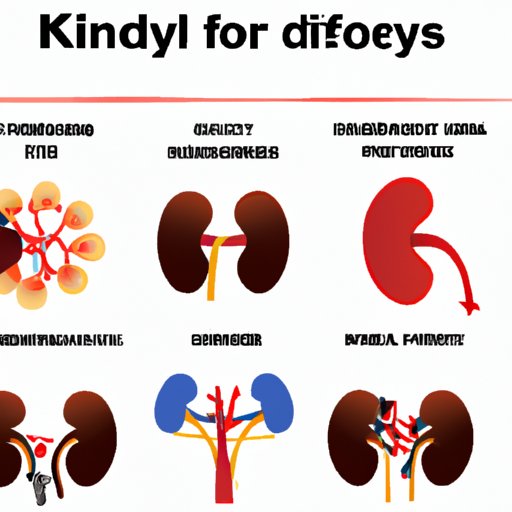
How Do You Know If Your Kidney Is Bad?
Your kidneys play a vital role in your overall health by removing waste and excess fluid from your body. When your kidneys are functioning properly, you may not even realize they are there. However, when your kidneys start to malfunction, it can lead to serious health consequences if left untreated. In this article, we will discuss the importance of recognizing the symptoms of a bad kidney early, the factors that put someone at risk for kidney problems, and the steps you can take to protect your kidney health.
Symptoms of a Bad Kidney:
There are several physical symptoms that may indicate a problem with your kidneys. These symptoms can vary from person to person, but some common warning signs include:
• Fluid retention or swelling in your feet, ankles, and legs.
• High blood pressure
• Fatigue or weakness
• Shortness of breath
• Nausea or vomiting
• Pungent or ammonia-like urine
• Itchy skin or skin rash
• Changes in appetite
• Muscle cramps or weakness
If you are experiencing any of these symptoms, it’s essential to speak with your healthcare provider as soon as possible. Early detection and treatment of kidney problems can go a long way in preventing serious health complications.
Signs You Might Have a Kidney Problem:
Several factors can increase your risk of developing kidney problems. Age and family history are two such factors. If you are over 60 years old or have a family history of kidney disease, you need to be more vigilant about your kidney health than the average person.
Certain medical conditions such as Type 2 Diabetes, high blood pressure, and cardiovascular disease can also put you at a higher risk of developing kidney disease. Lifestyle factors like smoking, being overweight, and having a diet high in salt and protein can also take a toll on your kidney health.
Sometimes, kidney problems may not present with specific symptoms. However, if you have any of the risk factors mentioned above, it’s essential to get your kidney function checked regularly. Your healthcare provider will be able to advise you further on how often you need to get tested and what tests are necessary.
How to Recognize Kidney Disease Early:
The best way to detect kidney disease early is through regular check-ups with your healthcare provider. If you are at risk of developing kidney problems, your doctor may recommend getting your kidney function tested periodically.
The most common test for kidney function is a blood test that measures creatinine levels in your blood. Creatinine is a waste product that your kidneys filter out of your blood. If your creatinine levels are high, it could indicate a problem with your kidney function.
In some cases, your doctor may also recommend a urine test, an ultrasound, or other imaging tests to get a better look at your kidneys.
It’s important to remember that the process of diagnosing kidney disease can be complex, and it’s essential to work closely with your healthcare provider to understand your specific situation fully. Don’t hesitate to ask questions and advocate for your health.
Warning Signs Your Kidney Function Isn’t Optimal:
For some people, kidney problems may not present with specific symptoms. However, there are some subtle warning signs you can look out for that may indicate reduced kidney function, such as:
• Changes in urine color (dark or foamy urine)
• Frequent urge to urinate
• Difficulty urinating
• Blood in the urine
• Pain or discomfort in the back or sides
• Swelling in the face, hands, or feet
• Shortness of breath
If you notice any of these symptoms, don’t ignore them. Speak with your healthcare provider as soon as possible to determine the underlying cause.
Understanding the Early Indicators of Kidney Failure:
Kidney failure occurs when your kidneys stop functioning altogether. If kidney disease goes untreated for an extended period, it can eventually lead to kidney failure. Some warning signs that your kidneys may be failing include:
• Persistent nausea or vomiting
• Severe fatigue
• Confusion or difficulty concentrating
• Seizures or coma
• Chest pain or pressure
• Difficulty breathing
• Irregular heartbeat
• Swelling in the legs or ankles
Kidney failure is a potentially life-threatening condition, and it’s essential to take your kidney health seriously. If you have a family history of kidney disease, or if you have any of the risk factors mentioned earlier, it’s a good idea to talk to your healthcare provider about how you can prevent the development of kidney failure.
Conclusion:
Early detection and treatment of kidney disease can go a long way in protecting your overall health and quality of life. If you are experiencing any of the symptoms of kidney problems, speak with your healthcare provider as soon as possible. It’s also important to adopt healthy lifestyle habits like quitting smoking, exercising regularly, and maintaining a balanced diet to reduce your risk of developing kidney problems. By taking proactive steps to protect your kidney health, you can ensure that your kidneys keep functioning properly and support your overall well-being.





